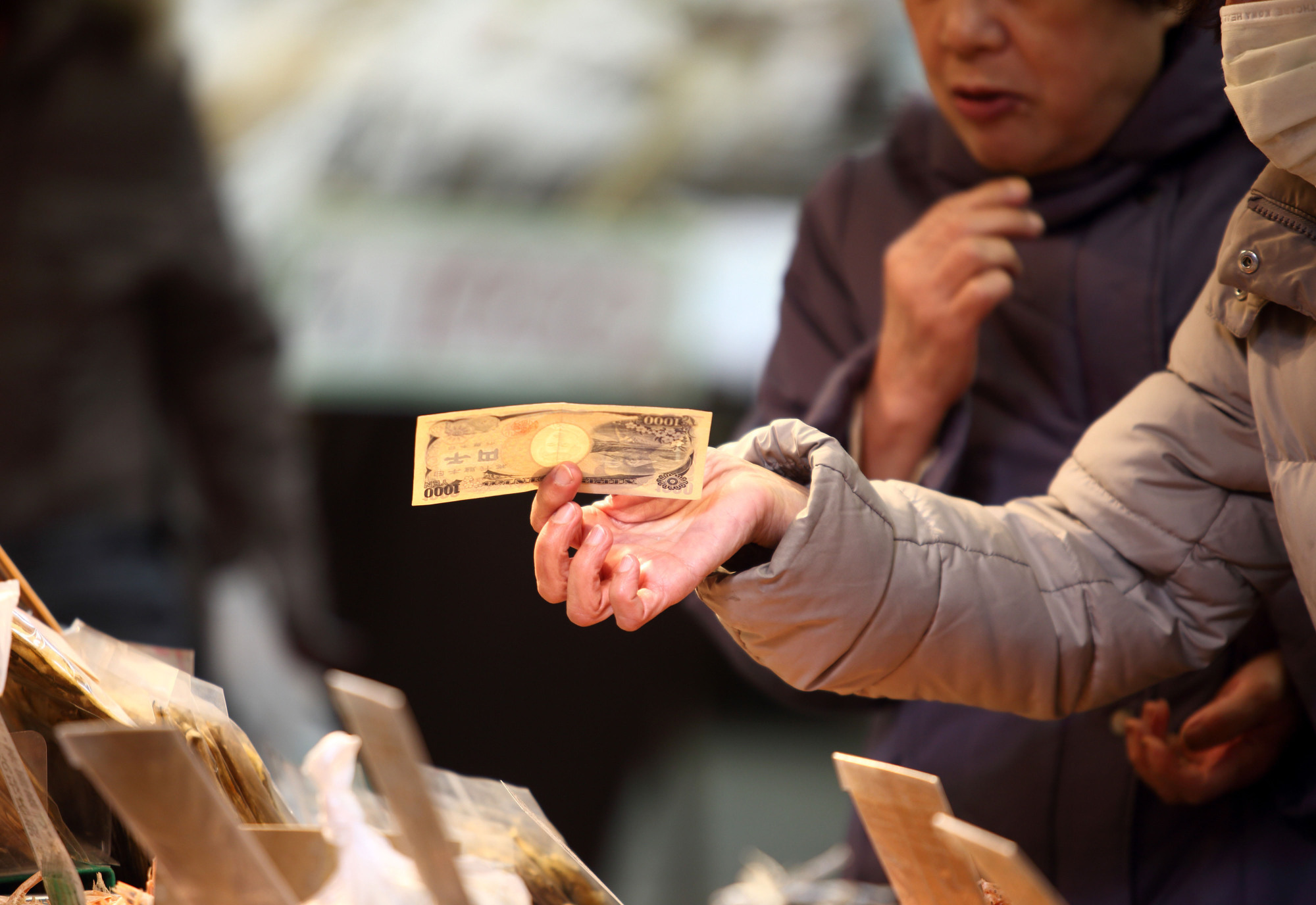In recent weeks there have been two well-reported robberies of people carrying large amounts of cash on the street. Thieves got away with ¥384 million after attacking a merchant in a Fukuoka parking lot. In Tokyo's Ginza district, a mugger managed to take ¥40 million from a man walking along a popular shopping boulevard. Both crimes happened in broad daylight.
Some will say these two unrelated incidents prove that Japan isn't as safe as it's thought to be, but what they mainly show is how cavalier people in Japan can be with cash. In Japan, many monetary transactions, including ones involving huge sums of money, are done in cash. Partly, this tendency has to do with a general mistrust of credit cards and debt, as well as with small businesses wishing to avoid the added cost and trouble of bank remittances and other forms of non-cash payment.
But there is another, more recent reason for why cash is king. According to an article in the April 10 Mainichi Shimbun by economist Hideo Kumano, the amount of legal tender in circulation in Japan in 2016 was ¥102.4 trillion, the highest ever. That works out to about ¥810,000 for every man, woman and child. A good portion of the population, Kumano assumes, actually has a lot more than ¥810,000. The problem is that the government doesn't really know because so much of this cash is privately hoarded.



















With your current subscription plan you can comment on stories. However, before writing your first comment, please create a display name in the Profile section of your subscriber account page.